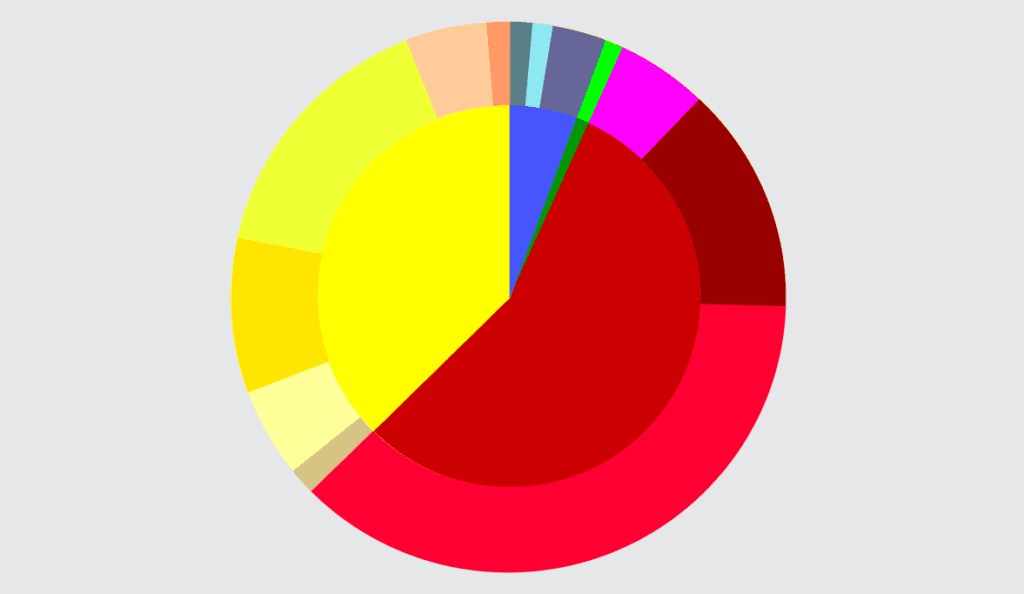One of the privileges of my profession is talking with clients about what they want to do with their money, about how they envision their future, and hope to live their lives.
During such conversations over the past several years, the responses of several younger clients have stood out for me. Increasingly, these conversations have begun to revolve around an overarching feeling of “I want to change the world.”
It left me pondering, frankly. I don’t have anything against changing the world per se. Nor is it my place to be discouraging, or to dismiss any client’s goals or wishes simply because they are BHAGs (big, hairy, and audacious). Nevertheless, I am a practical sort, and I have learned that the best way to reach a goal is to break it down into understandable, concrete, and time-limited steps. The journey of a thousand miles does, actually, begin with the first step. How do we begin to think about practical steps in this case?
If a client says: “I want to lead a company someday,” or “I want to have enough money to travel the world,” or just simply “I want to have a nice house and be able to enjoy my grandkids without having to worry about money,” we know where to begin. We drill down to the components, understand circumstances and resources (money as well as other resources), and build a workable roadmap. The elements of the roadmap will change over time – indeed the goal itself may change – but the process is tried and true. Planning can and does usually get you where you want to go, as long as you know where that is.
How will you know?
The first challenge with “I want to change the world” is how to even start. An even more important one may be “How will I know when I’ve achieved what I envisioned?”
Not only do practical questions immediately arise, but also some pretty deep philosophical ones. There is always an unspoken modifier in the goal statement. It isn’t just “I want to change the world.” It is really “I want to change the world for the better.” But better how and by whose definition? ISIS is clearly changing the world, and while the individuals involved in that movement clearly do believe they are working toward a better world by their definition, I assume that’s not what my clients have in mind. That’s part of the rub. If the changes you envision involve other people, do you care about whether the people whose lives you may touch agree with you or not? Do you care about unintended consequences? Do you care about whether the change is lasting or not? How will you approach the age-old question of “does the end justify the means?”
Thinkers who are vastly more intelligent than I have been pondering these questions for millennia now, and, as far as I know, haven’t settled on a single, particularly satisfying answer. How am I supposed to help clients who come to us with a simple, but general feeling that they want to make a big impact with their lives?
A Different Perspective
In the midst of this pondering I was struck with an idea, a simple change of perspective.
I have been reading a history of scientific thought1, and was particularly intrigued by a biographical cameo that I was familiar with but hadn’t considered in a long time. Gregor Johann Mendel probably doesn’t make very many people’s list of the “100 Most Influential People” of all time. Nevertheless, he probably should. His detailed, rigorous, patient, and painstaking experiments involving plant heredity provided a crucial foundation for the modern understanding of genetics – all before anybody actually knew what a ‘gene’ was or had even given it a name. His life and work literally changed the world.
Yet not a single contemporary of Mendel’s knew or even guessed that this would be the case. Mendel, the son of Silesian peasants, came to the Augustinian abbey of Brno in 1843 and was ordained a priest in 1847. He was terrible at being a traditional priest, too timid and uninspiring to be a parish priest, and too neurotic to stomach a life among the poor. Yet he had an intellectual bent, was disciplined and systematic – plodding even – in his personal habits, and the Abbot thought that he might make a decent teacher. At that, too, he failed spectacularly. In the spring on 1850 he took and failed the formal written exam for high school teachers of science, with a particularly dismal performance in geology. His performance in the oral part of the exam was even more embarrassing. Nevertheless, the Abbey, not knowing what else to do with gentle Gregor, encouraged him to prepare more thoroughly for a second try at the exam by attending the University in Vienna, which he did until 1853. After substitute teaching for several years, he tried again in 1856 to take the teachers exam, but reportedly quarreled with the examiner and returned, unsuccessful, to Brno, never to try again.
Not knowing what else to do, the friars of Brno apparently simply practiced benign neglect from then on toward their odd and unpromising Brother, who busied himself planting and hybridizing tens – even hundreds – of thousands of pea plants over the ensuing years, keeping meticulous records of the results over several generations. It was Mendel’s idea of carefully following heredity over not just one, but several generations that turned out to be the breakthrough idea. That, and the fact that the plodding Gregor kept such exacting records of both his methods and his results, in contrast with typical practices of the times. These experiments conclusively demonstrated that inheritance operated not by ‘blending’ – as had previously been assumed – but through the agency of individual, and identifiable, ‘elements’ of inheritance. In other words, he discovered what we today call the gene.
Mendel published his work in the obscure Proceedings of the Brno Natural Science Society in the 1850s, but was met only with indifference – even hostility – by the official scientific community of his day, who thought him an unworthy amateur. He sent a number of reprints of his study to leading scientists of the time, all without garnering any particular interest. He is even thought to have even sent a reprint to Charles Darwin, who at the time was trying to figure out how to fit the concept of heredity into his new theory of evolution. But there is no record of Darwin, if he did receive Mendel’s study, ever having read it. If he had, scientific progress might have been foreshortened by half a century. It wasn’t until decades later, long after Mendel’s death, that another Englishman, William Bateson, re-discovered the monk’s work in 1900 and made it his personal mission to bring it to the world’s notice.
What Do We Know?
Mendel’s story struck me as enlightening and thought-provoking. Here was someone who, without a shred of a doubt, changed the course of human history for the better. He was also, by the standards of his day, a professional and scientific failure. His epitaph, “Gentle, free-handed, and kindly… Flowers he loved,” gives no indication of greatness. It made me ask the question: What can we really know about the impact we have on the world?
Having meditated on Mendel’s story, I decided that my own perspective had changed. I was no longer worried about plans to change the world. Why? Simply because I don’t believe that any of us knows, or can possibly know, the full extent and nature of the impact we have on the world. What I do believe, however, is that each of us, by the simple fact of living in the world, changes it in some small way. And if we depend on – or wait for – external validation of our actions, we have at least as much chance of getting it wrong as of getting it right. History shows that, as frequently as not, it is the failures – like Mendel – the outliers, the misfits, those who aren’t professional or commercial successes, who end up having a lasting impact. Life impact is simply one area we don’t know how to plan for very well.
So, while respecting their high ideals, I no longer feel bad about re-focusing conversations with my young clients towards more immediate and practical concerns. Leading a happy life – and a good one either by one’s personal ethical or a more traditional religious standard – seems a sufficiently challenging goal to me. Rest assured, I will tell them, you will change the world just by living in it. If there’s some specific thing you want to achieve in your life, that’s great. We can plan for that. But try not to have angst about the impact you will have on the world, since the exact nature and extent of your impact is probably beyond our ability to competently foresee or manage anyway. Instead, focus on the specifics of the here and now, as well as on a concrete future that you envision to be happy, and good. Given that, we can make plans and you can begin to take steps to make those plans a reality.
[1] The Gene: An Intimate History, by Siddhartha Mukherjee
Image by Stokkete from Shutterstock




1 thought on “You will change the world. Guaranteed.”
Great article Jane. I have last read Siddhartha Mukherjee’s 1st book – The Emperor of all Maladies – a biography of cancer. It won the Pulitzer in 2010, I think you know, and we spoke about it when we last saw each other. Now I need to read this one too. Anything he writes is an elegant “read” and always thought provoking.
Thank you again…. Carol